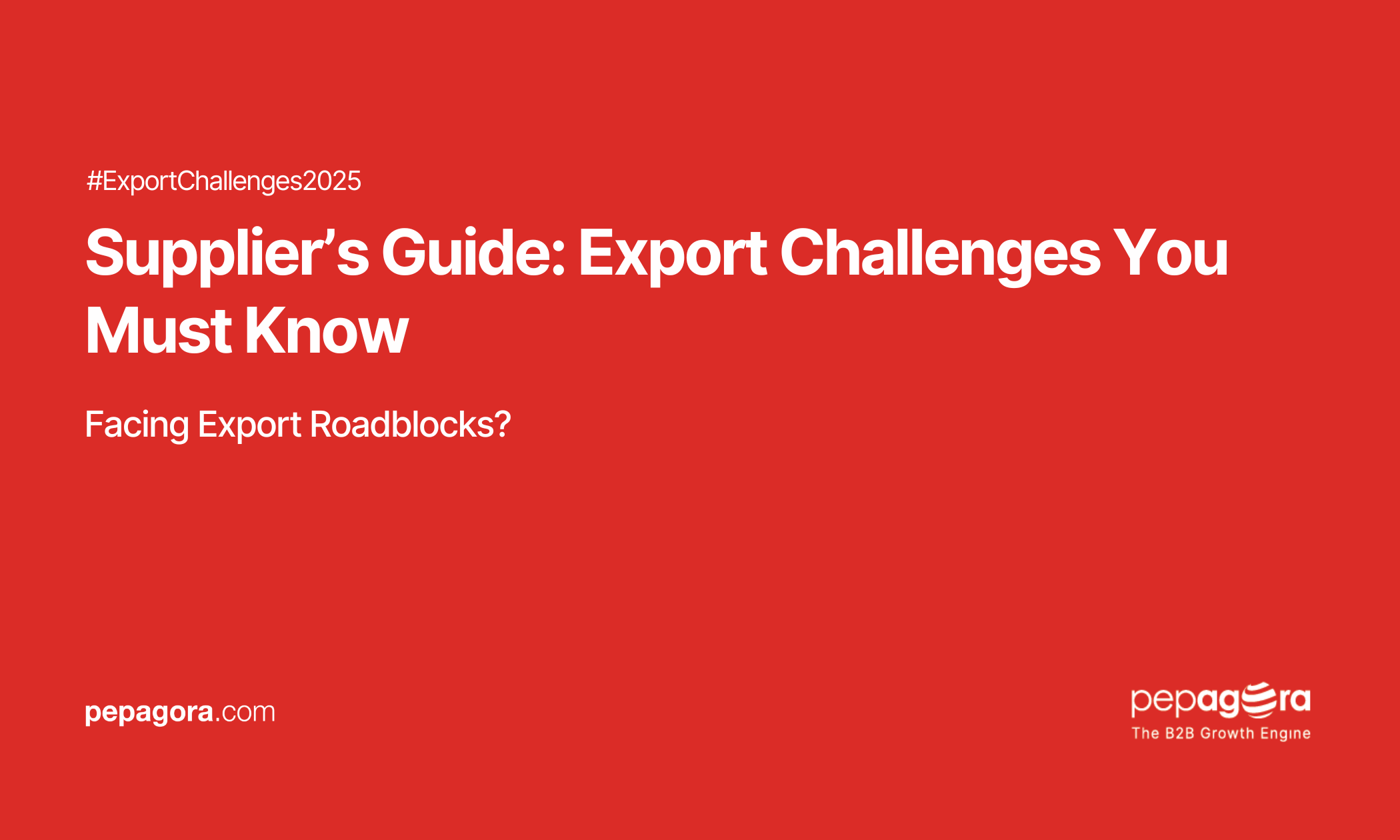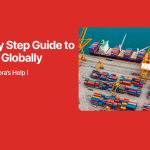
Supplier’s Guide: Export Challenges You Must Know
So, you’re thinking about exporting your products. The idea itself feels exciting new markets, more buyers, and of course, bigger profits. Every supplier dreams of seeing their products travel across borders and land in the hands of international customers.
But here’s the harsh reality: exporting is not as simple as just packing your goods and sending them off. It comes with its own set of roadblocks. And if you’re not prepared, those roadblocks can drain your money, your time, and sometimes even your reputation.
This blog isn’t meant to scare you away from exporting it’s meant to wake you up. Because the last thing you want is to discover these challenges when you’re already in trouble.
Let’s walk through the biggest export challenges suppliers face and how you can avoid them.
The Paperwork Trap: Regulations & Documentation
Every country has its own rules. One might ask for a certificate of origin, another may demand special quality tests, and someone else may want additional safety approvals. Miss one document, and your shipment can sit at customs for weeks.
Now imagine this your buyer is waiting, your payment is stuck, and you’re helpless because of a single missing paper. Many suppliers have been through this nightmare, and some never recovered. That’s why it’s always worth double-checking with a consultant or a freight forwarder before you ship.
Payment Risks: The Fear Every Exporter Has
You’ve shipped your goods. The buyer has received them. But the money? Still not in your account. Days turn into weeks. Emails go unanswered. This is one of the toughest realities of exporting getting paid on time isn’t always guaranteed.
Many exporters fall into this trap when they trust the wrong buyer or agree to unsecured terms. To stay safe, secure payment methods like Letters of Credit or at least partial advances can make all the difference.
Currency Fluctuations: Silent Profit Killers
Currency exchange rates are unpredictable. Let’s say you sealed a deal when the dollar was strong. By the time you get paid, the value has dropped. Suddenly, the profit you were counting on has disappeared.
It may not sound like a big issue at first, but for regular exporters, currency swings can eat into margins quietly. Banks and financial institutions often provide options to reduce this risk, and it’s something every exporter should consider.
Logistics & Shipping Delays: The Race Against Time
Exporting isn’t just about sending goods it’s about sending them on time. A delay at customs, a strike at the port, or even bad weather can throw your schedule completely off track.
From the buyer’s perspective, late delivery equals unreliability. And if you can’t meet deadlines consistently, they won’t hesitate to look elsewhere. Working with experienced logistics partners and having backup plans can help you stay on top of these challenges.
Cultural & Market Differences: What Works Here May Fail There
One of the most common mistakes is assuming that a product popular in your home market will be equally successful abroad. But markets are different. Something loved in India may not appeal in Europe or the Middle East. Even packaging, colors, and branding can mean very different things across cultures.
That’s why research is key. Knowing your target market before you send your first shipment saves you from wasted effort and disappointment.
Quality Standards & Certifications: Non-Negotiable
International buyers take quality very seriously. They expect products to meet strict standards—ISO, CE, or industry-specific certifications. If you can’t prove compliance, your shipment could be rejected.
Rejected goods don’t just result in financial losses. They can hurt your reputation, and once your name is associated with poor quality, it’s difficult to regain buyer trust. Getting certifications and maintaining quality should always be at the top of your list.
Fake Buyers & Scams: The Ugly Side of Exports
Not every buyer inquiry is genuine. Some scammers pose as large buyers, lure suppliers into shipping goods, and then disappear. Others try tricks like advance payments for registrations or hidden fees.
Falling for scams doesn’t just drain your finances it can shake your confidence in exporting altogether. This is why verifying buyers, using trusted B2B platforms like Pepagora, and checking trade references are so important.
You can also directly connect with buyers and suppliers on Pepagora to build genuine business relationships. And if you’re wondering why so many businesses already trust Pepagora, here’s a detailed guide: Why Buyers & Sellers Choose Pepagora.
Final Thoughts: Don’t Step Into Export Blindly
Exporting can transform your business. It can open doors to opportunities you never imagined. But stepping into it without preparation is like walking into a storm without an umbrella.
Before sending your first shipment, pause and reflect. Are your documents in order? Do you have a safe payment plan? Do you understand your target market? Can you handle unexpected delays?
If you’re unsure about any of these, take a step back and prepare. Exporting done right can elevate your business to new heights. Done wrong, it can drain everything you’ve worked for.
The choice is yours prepare wisely before you go global.
FAQs: For Export Challenges
Begin with market research, identify potential buyers, understand export regulations, and make sure your product meets international quality standards. Registering on a reliable B2B platform like Pepagora can also give you a strong start.
Always verify buyer details, check trade references, and avoid rushing deals. Using secure platforms and trusted intermediaries adds an extra layer of safety.
Common documents include a commercial invoice, packing list, bill of lading, certificate of origin, and any required quality or safety certifications. Requirements vary by country, so double-check for your target market.
Exporters often use bank tools like forward contracts or hedging options to fix exchange rates in advance. This helps reduce the risk of sudden currency value changes.
A trusted marketplace gives you access to verified buyers, secure connections, and better visibility in global markets. It reduces the risk of scams and helps you expand faster with confidence.
Pepagora
B2B Growth Engine
Don't miss out! Join the Pepagora community! Follow us on social media for exclusive content and tips.


